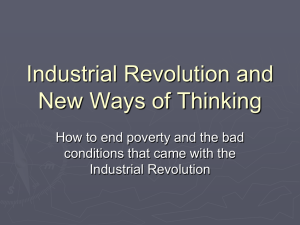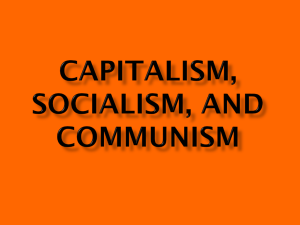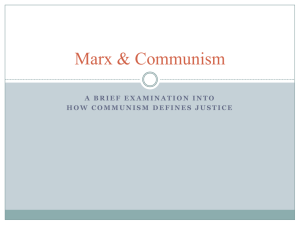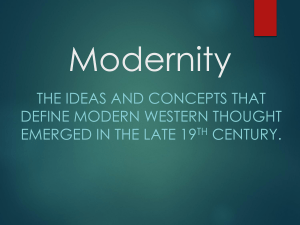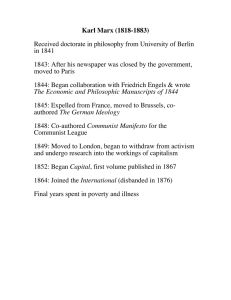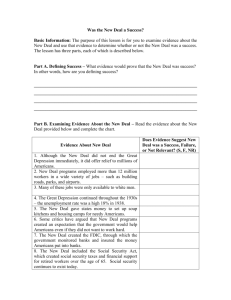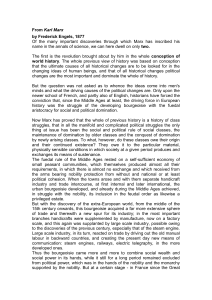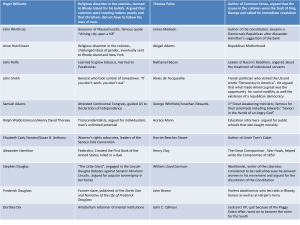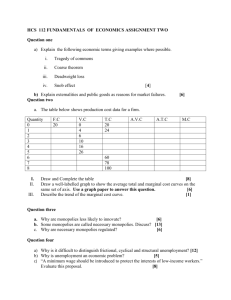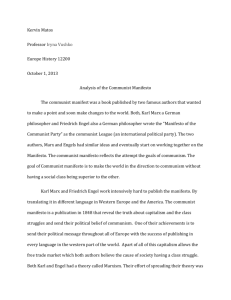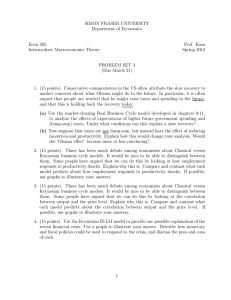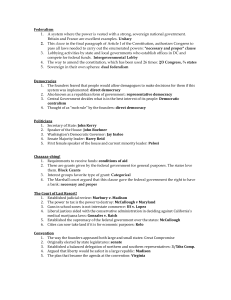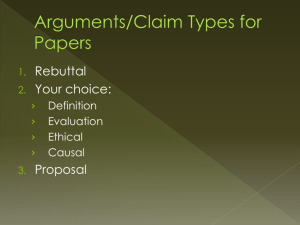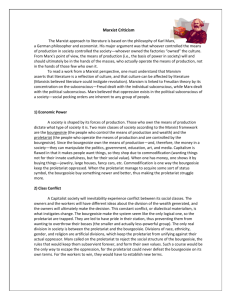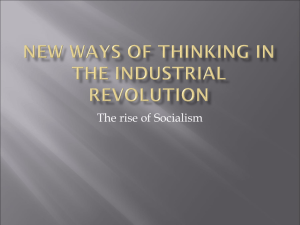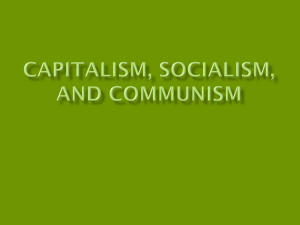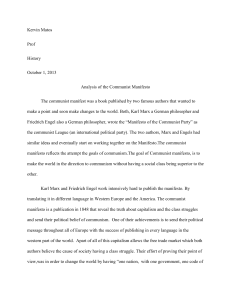19th cen. economic guided notes
advertisement
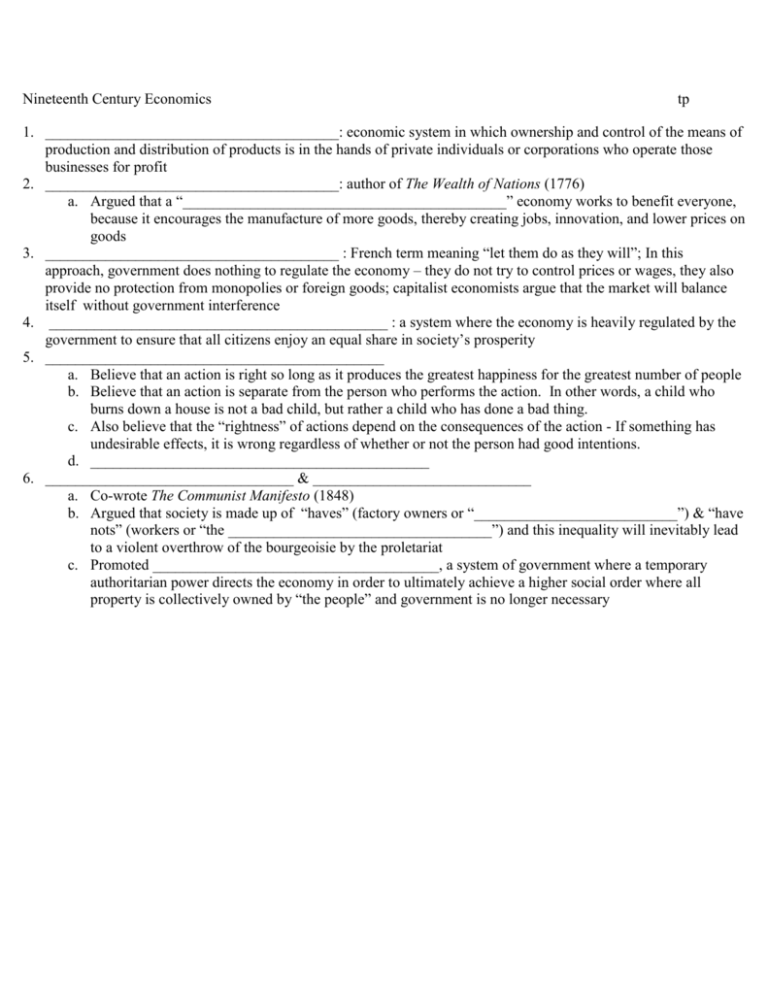
Nineteenth Century Economics tp 1. _______________________________________: economic system in which ownership and control of the means of production and distribution of products is in the hands of private individuals or corporations who operate those businesses for profit 2. _______________________________________: author of The Wealth of Nations (1776) a. Argued that a “___________________________________________” economy works to benefit everyone, because it encourages the manufacture of more goods, thereby creating jobs, innovation, and lower prices on goods 3. _______________________________________ : French term meaning “let them do as they will”; In this approach, government does nothing to regulate the economy – they do not try to control prices or wages, they also provide no protection from monopolies or foreign goods; capitalist economists argue that the market will balance itself without government interference 4. _____________________________________________ : a system where the economy is heavily regulated by the government to ensure that all citizens enjoy an equal share in society’s prosperity 5. _____________________________________________ a. Believe that an action is right so long as it produces the greatest happiness for the greatest number of people b. Believe that an action is separate from the person who performs the action. In other words, a child who burns down a house is not a bad child, but rather a child who has done a bad thing. c. Also believe that the “rightness” of actions depend on the consequences of the action - If something has undesirable effects, it is wrong regardless of whether or not the person had good intentions. d. _____________________________________________ 6. _________________________________ & _____________________________ a. Co-wrote The Communist Manifesto (1848) b. Argued that society is made up of “haves” (factory owners or “___________________________”) & “have nots” (workers or “the ___________________________________”) and this inequality will inevitably lead to a violent overthrow of the bourgeoisie by the proletariat c. Promoted ______________________________________, a system of government where a temporary authoritarian power directs the economy in order to ultimately achieve a higher social order where all property is collectively owned by “the people” and government is no longer necessary
